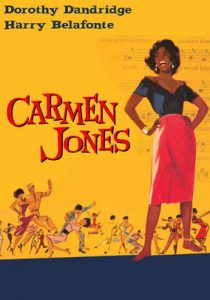Free to Be…You and Me-1974
Director Bill Davis
Starring Marlo Thomas, Alan Alda, Harry Belafonte
Scott’s Review #1,262
Reviewed June 3, 2022
Grade: A
I don’t typically review television specials or television series since, hence the title, my website isn’t about that.
But, because of the sheer relevance and groundbreaking nature of Free to Be…You and Me (1974) and that it is more of a ‘project’ than merely a television special I felt compelled to provide its deserved recognition and praise.
A record album and illustrated book first released in November 1972 featuring songs and stories sung or told by celebrities of the day also makes it meatier than a one-and-done hour-long slot on a random Monday night.
The running time is a mere forty-five minutes in length but a lot happens during this time and leaves any viewer with an open mind thinking about how everyone should see it.
To summarize, the emotions the experience elicits supersedes the limited amount of screen time.
The project was conceived, created, and executive-produced by actress Marlo Thomas who also serves as host. What a great human being she proves she is to bring something so valuable to the small screen.
The result is something so ahead of its time that the message feels powerful watching it for the first time nearly fifty years later in 2022.
You can’t say that about most television.
The basic concept is to celebrate and encourage gender neutrality, saluting values such as individuality, tolerance, and comfort with one’s identity. Strong messages.
These ideals began to emerge throughout the late 1960s when the sexual revolution transpired.
A major theme is that anyone regardless of being a boy or a girl can achieve anything and be whatever they want to be.
I adore early on when a scene from a hospital emerges, infant depictions of Thomas and Mel Brooks debating their genders. They say their goodbyes as they leave the hospital but the moment is long remembered.
Later, Thomas and Alan Alda sing about a boy named William who wants a doll. And why shouldn’t he? Just as Sally, Jennifer, or Mary should be allowed to play with a dump truck should they feel like it.
Surely, the United States, the project’s main region, has slowly become more progressive in the subsequent decades. A sad reminder is that some people still have a problem with gender neutrality or even gender equality.
We’re not out of the woods yet, folks.
But those people are to be dismissed and not embraced.
Guest performers include Alda, Cicely Tyson, Tom Smothers, and Harry Belafonte, while Roberta Flack, Michael Jackson, Rita Coolidge, and Kris Kristofferson help supply the tunes.
A shockingly young Jackson also appears in a skit.
The production features uplifting sketches and songs that urge young and old to welcome diversity and embrace individualism.
I ruminated throughout my viewing how similar in many ways it is to PBS’s Mister Rogers Neighborhood, using puppets to appeal to youngsters and teach treasured messages. The kindness of the characters provides protection and warmth, teaching worth and value.
Free to Be…You and Me (1974) deservedly became an Emmy-winning TV special that taught many children (and adults) how to celebrate and respect diversity.
I hope that someone somewhere gives Free to Be…You and Me a boost and it become shown in schools all across the world.
It’s a timeless masterpiece.


